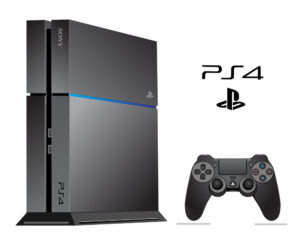Recently, the head of Microsoft’s Xbox gaming division, Phil Spencer, gained some attention when he acknowledged that Xbox has lost the so-called “console wars” against Sony and Nintendo. He goes on to suggest that the current difficulties facing the Xbox business stems from the fact that they “lost the worst generation to lose in the Xbox One generation, where everybody built their digital library of games.” Even if you, dear reader, are not as interested in video games as I am (or at least as I was, when I actually had time for them), there’s an important lesson about economics and markets to be taken from this.
First of all, why did Xbox lose the console wars, and particularly, why did they fail so badly at the Xbox One generation? One gaming journalist points out that while “the [previous generation system] Xbox 360 had serious momentum behind it, the Xbox One stumbled out of the gate with its plans for absolutely bizarre, anti-consumer online requirements and used game restrictions.” The Xbox One would require users to maintain an internet connection in order to play games, even games that didn’t have any online features. You couldn’t simply loan a game to a friend by giving them the game disc – the system wouldn’t work with that. Buying used games had similar restrictions. Additionally, the Xbox One came bundled with a voice and movement tracking system called the Kinect, which in theory would allow extra features to be built into games but in practice was poorly supported by game developers and not of particular interest to most gamers. But since the Kinect was required to be purchased with the system, the Xbox One was $100 more expensive than Sony’s competing PlayStation 4.

And most fundamentally, in the big event when Microsoft revealed their system, they were trying to pitch the Xbox One as a digital hub for all home entertainment needs, with its actual status as a game console being treated as just a secondary feature. But gamers didn’t want a game system that treated gaming as a secondary feature, and people who were primarily interested in a home media setup weren’t looking for a gaming console.
In short, Microsoft tried to convince consumers to want the product that Microsoft made. Sony, by contrast, focused on making the product that consumers wanted. And as a result, the PlayStation 4 dominated the Xbox One, both in sales and in the esteem of the gaming community. While I suspect Phil Spencer is right that people building up libraries of digital games had a long lasting impact, another factor he doesn’t mention is that by trying to get gamers to buy the system Microsoft wanted to make, instead of Microsoft making the system consumers would want to buy, the reputation of the Xbox brand took a major credibility hit among the gaming community – and gamers can hold grudges for a long time.
So what’s the important economic lesson I see in this? It’s an example that shows how in a market the consumer is king, and the wealth of corporations gives them little meaningful power. If gamers didn’t want to buy an Xbox, there wasn’t a single thing Microsoft could do to make them. And Microsoft is a much bigger company than either Sony or rival gaming company Nintendo. According to some quick Googling, at present, Nintendo is worth about $50 billion while Sony is worth about $100 billion. Microsoft, by contrast, is worth about $2.3 trillion. That’s over twenty times what Sony is worth, and more than forty times the value of Nintendo. But both Sony and Nintendo have significantly outperformed Microsoft in the gaming industry. Despite all their wealth and resources, Microsoft can’t simply buy success for their gaming system on the market. All of their considerable resources do them no good when customers are free to spend their money elsewhere, and when even much smaller competitors can entice those customers away from Microsoft by giving the consumer something they want more.


Comments are closed.